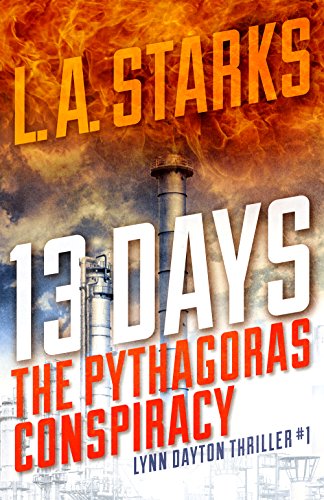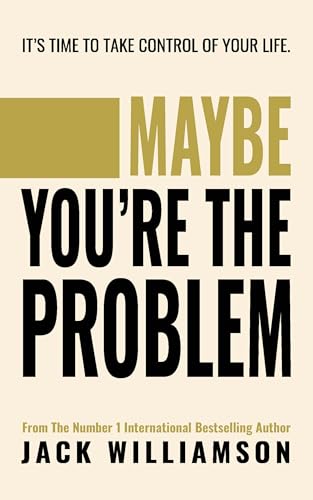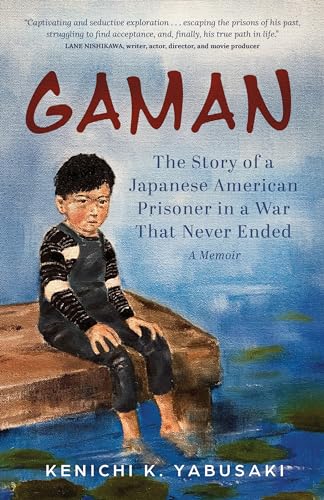And here, for your reading pleasure, is our free excerpt:
Prologue
February 14, 2012
6:15 a.m.
SEATTLE’S DISCOVERY PARK is located on Magnolia Bluff, overlooking the Puget Sound. The park’s westernmost edge, unsurprisingly called West Point, juts into the Sound and divides Elliott Bay and downtown Seattle in the south from Shilshole Bay in the north. “DP,” as it’s affectionately known to Seattleites, is the largest park in the city and is a local favorite. The city maintains the park in a semi natural state, meaning the native grasses, ferns, and trees have been protected except where they intrude onto the paths and picnic grounds that have been carved out. Vistas from different points in DP feature spectacular panoramic views of the Sound, the Cascades to the east, and the majestic snowcapped Olympics to the west. On most days—the nice sunny ones, anyway—the miles of trails within the park are crowded with walkers, hikers, and runners, even at an early hour. This particular day, though, was not one of the nice ones, and the park was quiet and eerily muffled. The predawn sky was still dark, made even more so by a low-hanging mist. A cold Seattle drizzle fell from the clouds.
In the park’s east parking lot, Jerry Carlson finished his pre-run warm-up ritual near his car. Being a native Seattleite and an experienced runner, he adhered to the old Northwest adage that “the weather doesn’t dictate what you do—it only dictates what you wear while you do it.” With his tights, rain jacket, and hat, Jerry was well prepared. The rain and the darkness didn’t faze him. Jerry leaned against his car and did his stretches, taking care to warm up his leg muscles properly. He’d learned from hard experience that it was better to spend ten minutes stretching than ten weeks with a pulled hamstring. When he was satisfied that he was properly prepared, he checked to make sure he had his ID and his cell phone. He locked his car and began walking toward the trail entrance. Jerry liked to park in the east lot and join the Loop Trail there. His normal morning route allowed him to knock out an easy 3.7 miles before he headed to work. It usually took Jerry forty minutes or so, even if it was raining.
He started off at an easy pace on the Loop Trail as it wound its way westerly through the forest. After a half mile, he made a turn to the north on a narrow side path cut through the forest. One hundred yards later, he broke out of the trees and passed through the north parking lot. He noticed a dark SUV with two fellow early morning runners doing their warm-up stretches alongside. He didn’t recognize either man, so he didn’t stop to chat. Instead, he waved as he passed, and they waved back without saying anything. He re-entered the forest on the far side of the north lot and worked his way back up to a steady rhythm. After so many years on the trails, the correct running cadence was as natural to Jerry as walking.
Ten minutes later, he reached the Indian Cultural Center and turned south on an access road that was closed to private vehicles. Aside from the two guys in the parking lot, he still hadn’t seen another runner on the trails yet. Not surprising, he thought, wiping the rain from his face. Only the diehards come out on a day like today.
His mind wandered freely, lost in the steady rhythm of his footsteps on the pavement. He had a sudden moment of near panic when he realized that today was Valentine’s Day and he’d yet to order flowers for his wife. Could be trouble getting them delivered now, he worried. Fortunately, his assistant was very resourceful, and he knew he’d be able to rely on her to help bail him out.
Just as the access road Jerry was on reached an intersection with a main road, his thoughts were interrupted by a strange muffled sound that caused him to pull up and stop. What was that? he wondered. Was it a yell? He wasn’t sure what he’d heard. He strained to listen, trying to pull sounds from the mist. He wasn’t out of breath yet, so he was able to hear clearly. Seconds later, he heard a sharp pop! from his left—the direction of the north parking lot where he’d been ten minutes earlier. He turned in the direction of the sound and peered into the gray mist, but he was too far away—he couldn’t see the parking lot from his intersection.
As an accountant for the Seattle Police Department for the past twenty-three years, Jerry’d had plenty of opportunities to hear the sound of firearms at the department’s various ranges. He’d spent days in the range offices, auditing visitors, supplies—basically, whatever needed to be counted. He’d grown accustomed to the sound of guns being fired, and the noise he’d heard sounded just like a muffled gunshot to him. He felt his heartbeat increase as he reached for his cell phone and started to dial 9-1-1 when he suddenly caught himself.
Wait a second! Slow down! What if the noise was just a backfire? Given the direction, it was most likely that that SUV was trying to start up and leave. I’d look like the stupidest police department employee in the world if I called in a gunshot and it turned out to be a car needing a tune-up. Jerry realized there’d be no end to his harassment. The guys would be popping off firecrackers near his car in the parking structure for the next year. Not wanting to be the butt of anyone’s joke, Jerry decided to investigate before making the call. He was less than a quarter mile from the north parking lot. He began jogging in that direction.
* * * *
Two minutes later, he entered the lot from its west side. The SUV he’d seen earlier was gone. Instead, there was a car in the lot—a silver Lexus. Even through the dim mist, Jerry recognized the car as belonging to another frequent runner named Tom. Jerry had seen Tom on the trails many times. Although they weren’t technically friends, they were friendly enough, even to the extent that they’d run together from time to time when they bumped into each other on the trails. Jerry recalled Tom saying once that he worked in the tech industry.
Tom’s car lights were off, but with the help of the overhead parking lot light on the far side of the car, Jerry could see that Tom was still sitting inside, motionless. Jerry approached cautiously. He reached into his pocket and pulled out a small flashlight his daughter had given him for Christmas, but he didn’t turn it on yet. When he reached a point about ten feet from the passenger-side door, he called out, “Tom!”
The man in the car didn’t respond.
“Tom!” Jerry shouted, louder. “Are you all right?”
Still, Tom didn’t respond. Jerry took another couple of steps toward the car. He turned his light on and shined it inside the car.
“Oh my God!” he yelled. Inside the car, Tom leaned against the driver’s door, eyes fixed wide open. Jerry could see that he’d been shot. The driver’s window had been partially blown out. Where it was still in place, it was covered with blood and brain matter.
Jerry immediately broke into a cold sweat and felt both faint and sick to his stomach. He took a deep breath and tried to steady himself. When he was able, he grabbed his cell phone and punched in 9-1-1.
“A man’s been shot,” he gasped. “Discovery Park. North parking lot.” He took two steps backward, and then turned and threw his breakfast up onto the parking lot.
* * * *
At 7:15 a.m., Seattle Police Department Homicide Detective Inez Johnson rolled into the SPD garage in a tired, unmarked white 2004 Ford Crown Victoria. Just as she’d arrived at her office in the Seattle Criminal Justice building downtown earlier that morning, she’d received a call on her cell phone directing her to investigate a shooting at Discovery Park. She’d put her briefcase with the case files she’d taken home on her desk, grabbed a camera, and turned right back around for the garage. She made it to Discovery Park in twenty minutes.
Johnson scanned the area as she rolled up. Two squad cars and a fire department paramedic unit were already on scene, parked behind and beside a silver Lexus. There were no other cars in the lot. Inside the Lexus, a man—apparently the shooting victim—was hunched against the driver’s side door. Three police officers and two paramedics stood in a group behind the Lexus, talking to each other. Since no one was working on trying to save the victim, Johnson interpreted this as confirmation that the man in the Lexus was already dead. She parked alongside the other vehicles and got out.
“Good morning, Detective,” one of the patrol officers said to her as she approached the group. “Ryan Matthews, West Precinct.”
Johnson looked at the Lexus. “Doesn’t look like much of a good morning for him, does it, Officer Matthews?” she said as she nodded toward the person in the Lexus. Her voice had a distinct Caribbean accent.
Matthews glanced at the Lexus. “True,” he said. “Not for him. He was DOA when I got here.”
She carefully scanned the area. “Were you first on scene, then?” she asked.
“Yes, ma’am, I was,” he said. “I got the call at about 6:40 and rolled up five minutes later. I was met by the man who called it in.”
“Where’s he now?” she asked, looking around.
“We’ve got him in the back of my car.” Matthews nodded toward his patrol car. “Turns out, he’s a bean counter for SPD. Works downtown.”
Johnson stared at the man through the closed window of the patrol car. He looked shaken. “Is that right?” she asked.
“Yeah. Poor guy hurled all over the parking lot when he saw the dead guy in the car.”
She turned back and looked at the body in the Lexus. “Not hard to believe,” she said. “Don’t imagine an accountant sees dead bodies all that often.” She looked at the blown-out side window and the blood and gore that covered it. “Especially like this one. Pretty good mess.”
Matthews nodded. “You’re probably right. He’s shaken up, that’s for sure. He says he’s a runner. Says he runs here in the park almost every day and that he’s seen the vic running here on occasion; even ran with him from time to time. Says the vic’s name is Tom—doesn’t know the last name. This morning, the witness says he was running by himself north of here near the Indian Cultural Center when he heard a gunshot. He came back this way to check it out and discovered the scene.”
Johnson looked at the body and at the blood spattered all over the inside of the car. “Probably came as quite a shock, seein’ his friend this way. I can see why someone not familiar with this would have trouble stomaching it.”
“Geez, Detective, I see ’em all too often, and I still have trouble with it,” Matthews said. “Especially ones like this. It looks like a classic 380 to me.”
She nodded. A “380” is Seattle Police Department code for a suicide. Like most cops, Johnson had mixed feelings about suicide investigations. On the one hand, a suicide MOD—manner of death—made her job easier, easier than a homicide, anyway. Looked at from a workload perspective, this was good. But personally, she always felt the price was too high. When she came upon a dead person, she always hoped that the victim hadn’t killed himself. Suicides disturbed her—they were completely senseless. The guy probably had a wife and maybe kids. Now, they were left to deal with the aftermath.
“I hate ’em, too,” she said. Then she added, “Someone called the ME, I suppose?”
“They’re on the way.”
“Good,” she said. “Then let’s have a look.” She pulled on a pair of rubber gloves. “Say,” she called out to one of the other police officers. “Would you guys drive over by the main entrance and block the road that enters this parking lot? No one comes in or out except the ME and his transport team. Look for ’em—they’re usually in a white van. Use your heads now.” They nodded, hopped in their squad car, and sped off down the access road.
Matthews led her to the Lexus. “The scene’s been secure since we got here, and the accountant says no one was here from the time he called until we arrived.”
Johnson nodded.
He continued. “I took a look through the passenger window. The paramedics got here just after I did. They had a glance through the driver’s window and confirmed he was dead.”
“How’d they do that? They touch the body?”
“Uh,” he hesitated. “No—I don’t think they needed to. The exit wound on the left side of the guy’s head is pretty big. A good part of his brains are spattered against the window there.”
Johnson nodded again. “Okay,” she said grimly. She studied the car for a second, and then said, “Pictures?”
“I shot forty or fifty with my digital camera,” he answered.
“Good,” Johnson said. “You get me copies, okay?” She looked through the passenger window. “Is that a note?” she asked, pointing to an envelope on the dash.
“That’s the first thing I thought,” Matthews said. “We didn’t touch it, of course.”
Johnson opened the door and took the envelope from the dash. She opened it and pulled out a note.
“Katherine—I’m so sorry to leave you like this, but there are too many problems with money and with the business. I can’t keep going anymore. Love, Tom”
* * * *
The investigation at the scene continued according to an established set of procedures. One of these was that in all cases involving death by suspicious or violent causes, a King County Medical Examiner was called to the scene. He arrived at just before eight o’clock. After introductions were made, the ME conducted a preliminary examination of the body just as it was found. He took his own photographs and carefully documented the position of the body in the vehicle. He made several measurements with a tape measure and recorded them for later use in a final, post-autopsy report. While he did this, Johnson spent the next forty minutes processing the scene for her reports. More photographs were taken. Jerry Carlson was interviewed and his statement taken. A gun—a large-caliber revolver—was recovered from the floor of the car. It was tagged and placed into an evidence bag. The note and envelope were placed into a separate evidence bag. No other evidence of any type was available.
At 8:30, the white van with the ME’s transport team arrived and waited for Johnson and the ME to finish their respective investigations, which happened shortly thereafter. At 8:45, the body was released to the transport team. The two technicians began the process of loading the corpse into a black transport bag in preparation for movement to the ME’s office, where a routine autopsy would be conducted.
“Detective Johnson,” the ME said as he watched the transport technicians load the body, “from what I can see, I’d say that the preliminary cause of death appears to be massive trauma caused by a single perforating gunshot wound to the right temple, probably by a large-caliber handgun. Manner of death initially looks to be suicide. I’d also say that it looks like your witness is probably correct—the time of death is very recent—within a few hours. If he says he heard a gunshot at six thirty or so, I can believe that. Initially, I don’t see anything suspicious at the scene. Anyway, we’ll do an autopsy and get the results back in a few days. I’ll issue you a case number and send you a report.”
“Thanks,” Johnson said. “Here’s my card. I don’t see anything that would lead me to disagree with anything you just said. I’ll do some background checking, and then I’ll just wait for your report. My guess is that unless you come up with something in the autopsy, we’ll probably end up calling this one a suicide.”
* * * *
Johnson had released Jerry Carlson earlier, after she’d finished his interview. He was feeling much better by then. An officer drove him back to his own car in a squad car. Now, with the body gone, the witness released, and all the on-site investigations complete, Johnson took one final look at the empty Lexus. “Thomas Rasmussen,” she said, studying her notes. She’d pulled his wallet from his pocket and had Matthews snap a picture of his driver’s license before the body was transported. “Thomas—why’d you go and do something like this? Money?” She shook her head. So senseless. “Stupid,” she said. “Thomas—this was no way to die.”
She thought for a second, and then grimaced and shook her head. “Officer Matthews,” she called out.
“Ma’am?”
“The scene’s all yours, Officer. Make sure the car gets to the impound lot.”
“Roger that,” Matthews said. Johnson left.
* * * *
Matthews had already called in a tow truck, and it was standing by, waiting for the signal. When he gave the go-ahead, the driver hooked up the Lexus and swept up the glass. By nine thirty—just three hours after the shot was fired—the parking lot was reopened to the public as if nothing had ever happened.
PART 1
Chapter 1
MONDAYS ARE MY lazy days—at least from a training perspective, that is. When it comes to hauling my butt out of a warm bed at oh-dark-thirty, lacing on my running shoes, and hitting the pavement—if it’s Monday—I don’t do it. Here’s the deal.
I’m a serious runner, and I follow a pretty rigid full-time training program year-round, rain or shine. The program for each day is different, designed to work out a particular aspect of my game—speed, endurance, strength, and so on. The intensity of the training program varies depending on the time of year. The common denominator, though, whatever week of the year, is that Mondays are always “recovery” days. In other words, I get to sleep late and not feel guilty about it.
This explains why at oh-six-thirty on the fifth of March 2012, I was sitting at the dining room table in my apartment overlooking Lake Union, wearing pajamas and drinking coffee. I was looking outside, watching the rain fall against my patio door instead of pounding uphill and feeling the same rain hit me in the face. Don’t get me wrong—I like the rain. If I didn’t, I’d probably be wise to find another place to live. I’m used to it, and running in the rain doesn’t bother me at all. But sitting in the warm apartment, drinking coffee, and surfing the net on my iPad isn’t so bad either—a bit of a treat, actually.
I have a habit of turning on the TV to one of those cable news channels that continuously scrolls the headlines across the bottom of the screen. Then I turn the sound off so I don’t have to listen to the perpetual drone of the announcers. Instead, I turn some music on low. This particular morning I was listening to an old acoustic standby—Bruce Cockburn’s Dancing in the Dragon’s Jaws.
I heard the shower kick on in the bathroom down the hall across from my bedroom. The smell of coffee filled the room. All in all, a very nice Monday morning. Then my phone rang. Caller ID: my dad. Wondered why he was calling so early.
* * * *
“Hey, Dad,” I said, as I turned the music down a notch just as “Wondering Where the Lions Are” started.
“Morning, Danny. I wake you up?”
“Yeah, right.” This was a joke. He knows I’m an early riser.
He chuckled. “How was your weekend? Did you have a good time?”
I’d spoken to him on Friday and told him that I’d be “unavailable” over the weekend and would have to miss a Sunday morning breakfast we’d scheduled earlier. “You bet,” I said, recalling a very nice weekend indeed.
“Anyone I know?”
“Stop prying, Pop,” I said. I heard the shower doors slide open, and then, a moment later, a voice from the bathroom was singing loudly, “Wondering Where the Lions Are.” I smiled. Doesn’t get much finer than a beautiful woman singing in your shower to start off your morning. “You know I’ll fill you in when you have a need to know.”
He laughed again. “‘Need to know,’ huh? You act like I’m the one who was in the army. Well,” he continued, “you never were one to kiss and tell, were you?”
“You know me too well, Pop.”
“You bet,” he said. “Say, I’ve got something you might be interested in.” Ah, I didn’t think he’d be calling at six-thirty in the morning just to check up on my weekend.
“Shoot.”
“While you were off enjoying yourself, I was contacted over the weekend by a client. She’s actually quite a young woman, but I’ve had a long-standing relationship with her family—her parents, to be precise. Did I ever mention the Berg family to you?
“Berg?” I said, mulling the name over, trying to recall hearing it. “It sounds familiar, but I can’t place it.”
“Well,” he said, “our family’s known the Bergs for a long time. Karl Berg was a client of your grandfather’s first. Then I took over when your grandfather retired.” My dad’s a fourth-generation Seattle lawyer. There’s been a Logan attorney in Seattle continuously since 1892. I was supposed to be the fifth generation, but I opted for the army instead—a move that continues to confound my extended family to this day, especially given my current career choice as private investigator. Not to worry, though: I have three cousins who are members of the firm. The Logan place at the bar is secure.
“I think I might remember that,” I said, vaguely recalling the name. “Didn’t the Bergs have something to do with furniture?”
“That’s right,” Dad said. “Very good. Karl Berg founded the Seattle Furniture Expo in the mid-fifties. He grew it into the largest furniture retail operation in the Northwest—he was big here. Also in Spokane—even Portland. Karl sold the business to a national chain in the mid-eighties. He had a good run. I represented them in the sale. He and Ingrid retired then and started spending a lot more time with their daughter, Katherine.”
“Katherine came along a little later in life for Karl and Ingrid. They were probably in their mid-forties when she was born in—” he paused to remember, “—in 1974, I think. Katherine was their real joy—a godsend for them. Once they retired, they traveled and generally enjoyed life with their daughter. Sadly, both Karl and Ingrid have passed on within the last five years.”
“No other siblings?” I asked. “Katherine’s the sole survivor?”
“Yes, that’s right. She’s the last of the original Berg family—in Seattle, anyway. The good news is that Katherine got married to a fine man and bore two beautiful children of her own. So I guess you could say the line goes on.”
“That’s good,” I agreed. “But you said ‘the good news.’ Sounds like you’re about to hit me with some ‘bad news’?”
“Sadly, yes,” he said. “Does the name Thomas Rasmussen ring a bell?”
“Thomas Rasmussen?” I closed my eyes and concentrated. “Yeah. Isn’t he the tech guy that killed himself in Discovery Park a couple of weeks ago?”
“Correct. It pains me to have to say it, but Thomas Rasmussen was Katherine’s husband and the father of their two young children.”
The line was quiet for a second. “Geez,” I said. “I’m very sorry to hear that. That’s got to be a tough burden for Katherine to carry.”
“It is. As the sole inheritor of her parents’ estate, she’s very well off financially, of course. But emotionally, it’s very tough. As you say, it’s a hard thing to have to deal with.”
“I can’t even imagine,” I said. “Bad enough when a husband dies. But to lose someone to suicide has to create all kinds of issues in the minds of those left behind.”
“Indeed. Which brings me to the point of the call,” Dad said.
“And that is?”
“Katherine’s not convinced it was a suicide.”
This got my attention. “Really? What makes her feel that way?”
“I’d rather she told you yourself,” he said. “I want you to hear it the way she told me, word for word—not secondhand.”
“Fair enough,” I agreed. “When do you want to meet?”
“I apologize for the short notice, but how about breakfast at eight o’clock?”
“Eight o’clock this morning? As in the eight o’clock that’s just a little more than an hour from now?”
“Exactly.”
Fortunately, I didn’t have anything pressing this morning. Besides, my dad sends us quite a bit of business. For that (and other reasons), I owe him big-time. Not to mention the general fact that he’s always been a pretty cool dad, and I go out of my way to help him whenever I can. “Where’d you have in mind?”
“Lowell’s in Pike Place.”
“Lowell’s? Really? Come on, Pop.” Most of the Pike Place restaurants are mobbed with tourists.
“It’s fine,” he said. “If you get there early, it’s not crowded, and they have great breakfasts.”
I shook my head. “All right,” I said. “Lowell’s. But I get to pick the next restaurant.”
He chuckled. “Of course,” he lied. Dad always picks. “Excellent. Thanks for accommodating the short notice.” He paused for a second, and then added, “Do you think you’ll have any trouble getting yourself free by then?”
“Don’t be wise, Pop. It’s unbecoming. I’ll be there.”
He laughed. “Thanks, Danny. I owe you.” Just before I started to hang up, he said, “Oh, Danny! One other thing—tell your lady friend she has a fine singing voice.”
* * * *
I hung up and walked down the hall. I poked my head into the steamy bathroom and called out, “Hey!” over the noise of the shower. “You almost done in there? I just found out I’ve got an eight o’clock appointment, and I haven’t showered yet.”
The shower curtain slid open, and Jennifer Thomas smiled at me, her wet blond hair pasted slick against her head, a drop of water hanging on the end of her cute little nose. “You can always hop in with me,” she said, grinning seductively.
“Yeah, right,” I smiled. I leaned forward and kissed her lightly on the lips. “That’s supposed to save time? It’s tempting, but I’d probably never make it to my appointment.”
“And I’d probably miss my flight,” she said. “I’ve got to hurry as it is. My flight’s at nine-thirty. Get out of my way and stop tempting me.” She pushed me back and closed the curtain. “I’ll hustle,” she called out.
Jennifer is a senior special agent for the FBI Seattle office whom I met six months ago while working a case. She’s very pretty. She has blond hair and blue eyes. She’s about five six or so and has a movie-star body. Trust me—she looks nothing like what you’d expect an FBI agent to look like. In fact, she looks more like one of those good-looking cable news anchors instead—the kind that look like models and have law degrees, which, as it so happens, Jen does. She was friendly with me last summer, but I had no idea she was interested in anything other than a professional acquaintance until a month ago when she suddenly showed up on my doorstep.
It was about nine o’clock in the evening about a month ago when I heard a loud knock at my door. I wasn’t expecting anyone, and when I answered, I was surprised to see Jennifer. I hadn’t seen her since last August, and only briefly then. That said, she was quite memorable.
“Logan,” she said in a serious tone as she stepped into my doorway, “we can do this the easy way or we can do it the hard way.”
Uh-oh, I remember thinking. I was racking my brain, wondering if I was going to get busted for something, but then I noticed her start to smile. She put both hands on my chest and pushed me back into my apartment. She followed me in.
“I’ve been thinking a lot about you,” she said.
“You have?”
“I have.” She stepped toward me. I wasn’t sure what was happening. I retreated a step.
“I’ve been thinking,” she continued. “Here we are in Seattle. I’m single. You’re single. We’re both young and alive. We share similar interests, similar careers.” She took another step toward me. I tried to take another step backward, but I was up against the back of my sofa and had nowhere left to retreat. “I think,” she said slowly, “we should—” she hesitated, and then said, “hang out.” The words rolled seductively off her beautiful lips.
“Hang out?” I asked, haltingly.
“Yeah,” she said. “Hang out. You know, spend a little time together. No commitments—just good . . . clean . . . fun.” She pressed even closer.
I looked at her wide-eyed, trying to catch up mentally to what she was suggesting.
She sighed and said, “Okay, I see how this is going to work.” She backed up. “So it’s the hard way. Get your shoes on, grab your coat, get your ass in gear, and let’s go get a coffee and talk. After that, we’ll see what happens.”
So we did. We talked. Then we came back to my apartment that night, and we’ve “hung out” a whole lot ever since then.
We found that we liked each other. Jen’s from Georgia—joined the FBI right after graduation from the University of Georgia Law School. She’s smart and she’s easy to talk to. She’s very direct—about as subtle as a club to the head. She had no problem making it very clear that when it comes to romance, her notion of “long-term” means next weekend. All she wants to do is “hang out.” This works for me—I can be a pretty uncomplicated guy when circumstances call for it. I’m pretty good at taking things one day at a time. With these ground rules firmly in place, I’ve enjoyed the last few weeks with Jen.
* * * *
Thirty minutes later, we were both ready to go. “See you in a week or so, lover boy,” Jen said from her car as I stood at the curb in the rain. She was off to FBI headquarters in Virginia.
“I’ll miss you.” This was no lie.
“Don’t miss me too much,” she said. “I’ll be back.” She smiled at me as she drove off.
* * * *
I’d already pulled my Jeep out of the garage before she left, so I hopped in and headed for my office on Westlake Avenue on the western shore of Lake Union. My apartment sits on a bluff almost directly above the office, so it’s only a few minutes away. I’d already called my associate, Antoinette “Toni” Blair, and we agreed to meet out front at 7:40.
Toni and I have an interesting relationship. We met at the University of Washington in 2007 when we were both seniors majoring in Law, Societies, and Justice—similar to a Criminal Justice degree. I was still in the army, stationed at Fort Lewis where I was a special agent for the 6th MP Group—Criminal Investigation Division. This means, basically, that I was a sergeant in the army—an army cop who investigated felony offenses committed by army personnel all over the western United States. Toni was a waitress at the restaurant her mom ran in Lynnwood. We had both wanted to become private investigators after we graduated with our LSJ degrees (which was also about the same time I was discharged from the army).
I was impressed with her from the moment I saw her. Who wouldn’t be? There’s a lot to be impressed with when it comes to Toni. To begin with, she’s basically brilliant. I’m not stupid, but she’s way smarter than I am. She has a huge talent for detective work. She’s tough. She knows Krav Maga—the Israeli army martial art—almost as well as I do. I’ve seen her drop a two-hundred-pound man straight in his tracks with a flying back kick to the nose—he didn’t stand a chance. I don’t like to practice with her anymore because a) she’s really good, b) she hates to lose, and c) if all else fails, she cheats. And usually, while all this is happening, everyone’s watching her because—hell, everyone always watches her. By the way, she’s also a crack shot, although she hasn’t had to fire her Glock 23 “for real” since she became my first employee when I started Logan PI in March 2008.
And to completely prove that God does play favorites, whereas Jennifer Thomas is damn pretty, Toni is drop-dead frickin’ gorgeous in a Seattle-grunge-meets-Victoria’s-Secret sort of way. She has thick, medium-length dark hair—almost black. Her eyes are a brilliant blue the color of the Hope diamond. She’s five eight and built like a swimsuit model. She has a full array of smiles—from coy little grins to sincere ones that put people at ease all the way to full-on movie-star dazzlers that can melt a glacier. I’ve seen her with a variety of studs and piercings, depending on the occasion. To top it all off, she has a striking full-sleeve tattoo on her left arm and a Celtic weave tattoo on her right. She may have others, but if so, they’re better hidden and I don’t know about them.
And, I suppose, therein lies the rub. I’m not much of a ladies’ man—sure, I’ve had my fair share of successes, but I’m the first to admit that I just can’t figure them out. But a guy would have to be brain-dead not to make a play for Toni—even me. As it so happens, though, I have this thing that I picked up in the army that says office romances are to be strictly avoided. Most often, the situation gets complicated, and if things go south, you end up losing a friend, a lover, and a great employee all at the same time. Best to just not go there in the first place.
Toni and I’ve actually had this conversation in the past. For some reason, she sees me the same way I see her. That is, she likes me, but she also thinks the “hands-off” strategy is best. If we didn’t work together, who knows what would happen. But, since we do, and since we both love our jobs, we’ve decided to keep it strictly professional. We’ve never touched each other romantically.
That said, she’s the first one I turn to for advice and for backup. She often sees things that I don’t. More than once, she’s bailed me out of sticky situations. I know she always has my back, as I have hers. I rely on her completely. I once considered her my best friend, and I think she thought of me in the same way.
Yet despite the easygoing, uncomplicated, untangled history we had, something had changed between us—and not in a good way. Ever since I got back from visiting a friend in Hawaii in January, things have been different—more distanced.
She was pretty subtle about the coolness between us. She still smiled and talked openly around work. She still joked with the guys, but not so much with me. Around me, Toni’d been strangely withdrawn recently. She used to have no trouble at all telling me exactly how the cows ate the cabbage. If I needed support, she was there. If I was acting like a shithead (it happens), she’d tell me—right then, right to my face. She’d drop by my apartment for beers in the evenings. We’d sit out on the patio and talk. Sometimes, we wouldn’t talk, we’d just listen to music—Nirvana, Soundgarden, whatever.
But she hadn’t been over to my place since New Year’s. We seldom talked anymore, except about work-related things. Damn, I really missed the talks.
* * * *
I pulled the Jeep to the curb in front of the office. Toni was standing beneath an overhang, out of the rain, waiting for me. When she saw me pull up, she ran over and hopped in.
“Good morning,” I said, cheerfully.
“Hey there. Hi,” she said, as she closed the door.
“Thanks for getting here early.”
“No problem.”
“You look really nice today.” She wore black jeans with black Doc Martens boots, a white blouse, and a bright yellow North Face rain jacket. The yellow jacket made her dark hair and her blue eyes even more pronounced.
“Thanks,” she answered.
I’d hoped that my compliment to her would warm things up a little between us, but it didn’t look like that was going to happen. She didn’t say anything for several minutes.
I’m not terribly patient, and it wasn’t long before I couldn’t stand the silence any longer. “Are you okay?” I asked, as I drove south on Highway 99.
She glanced at me. “Yeah, I’m okay. Why?” she said. “Am I doing something wrong?”
I shook my head. “No, you know you’re not doing anything wrong. I’d have told you.” I paused. “Except, is something bothering you? Something I did? Did I do something wrong? If I did something, you need to tell me, you know.”
“It’s nothing,” she said. “You didn’t do anything. We’re okay.”
We drove in awkward silence for a couple of minutes.
“Who are we going to see, anyway?” she asked, finally breaking the ice.
“My dad called this morning.” I explained our phone conversation. I finished just as we reached Pike Place Market.
Chapter 2
WHENEVER MY DAD picks a restaurant, there are usually two things in common about the place. First, he doesn’t like to try new places very often, so if you’re looking for “trendy,” forget about it. Most likely, the restaurant he picks has been around since he was a boy—sometimes longer. Second, he always picks a place close to his office. And since his office is in a high-rise in the middle of downtown Seattle, it means I need to fight downtown traffic and look all over for a parking space once I get there. Inevitably, I end up having to park in a garage and hike three blocks. Anymore, I’ve come to expect it, and I just build this into my time estimate.
Lowell’s Restaurant meets both of these criteria—it’s been around since the ’50s, and it’s right downtown in Pike Place Market. The parking gods must have been smiling on me today, though, because I lucked out and found a metered parking space directly across the street from the entrance.
On a normal day, the market is buzzing with tourists by eleven and is completely packed by lunchtime, but at 7:45 there was a different sort of buzz. Some of the storefronts were just opening; some wouldn’t open until later. Trucks were double-parked, unloading their merchandise for the shop owners. Drivers wheeled hand trucks in and out of the pedestrian traffic. Shop owners cleaned their windows and arranged their displays. The early rising customers who wandered about were mostly locals picking out the freshest and most complete selections of flowers, ethnic foods, fresh fish, and the other items offered in the market just as they came off the trucks. But despite the relatively uncrowded aisles, the energy level was still high.
Toni and I picked and dodged our way through the activity and entered Lowell’s. Our hostess was a middle-aged oriental woman with her silver-black hair pulled tightly into a bun. I told her that we were meeting Charles Logan.
“Oh, yes,” she said. “Mr. Logan is already here. He’s expecting you. We’ve put him at a private table overlooking the water.” She led us through the restaurant, and then upstairs to a table on the second floor, where my dad was waiting. Katherine Rasmussen had not yet arrived.
“Good morning,” he said cheerfully, standing as he saw us approach. My dad is a little shorter than I am—maybe six feet even. He’s still pretty thin, even at fifty-nine years old. He has silver-blond hair that’s starting to go male-pattern-bald on top. He was turned out sharply this morning in a gray pin-striped suit and a red wine–colored power-tie. “My goodness, Toni, you look more beautiful every time I see you!” he said, smiling broadly as he leaned forward and hugged Toni.
Toni smiled back—one of her dazzlers. There’s something about a beautiful woman looking into your eyes and blasting you with a radiant smile that can melt any man’s heart. I’ve seen Toni do it many times, but it’s always fun to watch. My dad—stiff old Irishman that he is—was not immune. In fact, his eyes were twinkling, and he looked bewitched.
After a second, I said, “Dad, snap out of it. It’s me, your son, Danny. Remember me?”
He laughed as he turned to me. “Good morning, Danny,” he said, as we shook hands. “Sorry, but I was mesmerized by your beautiful partner here.” He pointed to the table. “Here, let’s have a seat. Katherine should be along in a few minutes.” We sat down, and the hostess handed us menus.
Dad turned back to Toni. “Toni, it’s been months since I’ve seen you. How are you? What’s going on in your life? You know, I feel like you’re part of the family. Bring me up to date.”
Toni smiled. “I’m doing fine, Chuck. Working away. This guy,” she pointed to me, “keeps me busy.” No one calls Charles Logan Junior “Chuck” except Toni—not even my mom. Toni called him that the first time she met him, four years ago at our grand opening. I couldn’t believe my ears. I braced myself, getting ready to be embarrassed. I knew automatically that my dad was going to correct her, without equivocation and with even less tact, immediately. But he didn’t! Toni said it with a smile that melted him, and he had had no objection at all. Amazing. Ever since then, I think he actually looks forward to it. It’s something the two of them share—she calls him by a name she knows he ordinarily wouldn’t tolerate, and he happily accepts it. In fact, he wears it like a medal.
“Claire’s always asking about you, you know,” Dad said to her. My mom loves Toni almost as much as my dad does.
“Tell her I said hello and that I still remember that I owe her a lunch,” Toni said. “I will definitely give her a call.” Toni paused for a moment, and then she got serious. “Danny explained things on the way over,” she said. “It’s just tragic. It sounds like Thomas Rasmussen had everything to live for. I don’t understand it.”
“Nor do I,” Dad said, shaking his head. He adjusted his napkin in his lap. “But I suppose that’s the existential question, isn’t it? How does a living, breathing man come to the conclusion that the best course available to him is to suddenly stop living? Stop the clock. How do you make sense of that?”
Toni shook her head. “I don’t know,” she said. “I don’t know if you can, actually. You know the old saying: ‘Suicide is a permanent solution to a temporary problem.’”
“I like that,” Dad said. “Who said that? Hume or Freud or Nietzsche—one of those guys?”
“Nope,” she said. “Phil Donahue.”
Dad laughed. “There you go, then,” he said. “Phil Donahue. A good Irishman.”
Toni took a sip of water before she continued. “So,” she said, “Danny says you’ve had a long relationship with Katherine’s family?”
“Yes, indeed—a long time. Her father was a client of my father’s. Then when my father retired, I took over the relationship and represented the Berg family on the sale of their business and personal matters from that point on. I’ve known Katherine since she was a toddler.”
“How old is she now?” Toni asked.
Dad looked up at the ceiling for a few seconds, lost in thought. “Katherine was born in the mid-seventies,” he said. “That means she’s what—thirty-seven? Thirty-eight? She was a very young child when I joined the firm. But—” he looked across the restaurant. The hostess was escorting a very tall, very pretty woman in our direction. “Well, here she comes now.”
I watched Katherine Rasmussen approach our table. She was hard not to watch. She wore dark blue jeans and tan boots that reached almost to her knees. Her coat was cream-colored with some sort of faux fur around the collar. She had to be six feet tall—maybe taller with the boots. She was thin, but not scrawny. She had shoulder-length blond hair that hung in loose curls. Her eyes were a vivid, deep blue. She wore what appeared to be diamond pendant earrings along with a single strand of black pearls. She looked like a Vogue model.
Dad and I stood as she approached.
“Am I late?” she asked when she reached the table.
“Not at all, my dear,” Dad said, reaching to shake her hand. “You’re right on time. Excellent to see you looking so well.”
“Thank you, Charles,” she said, smiling.
“Katherine, allow me to introduce Antoinette Blair and my son, Danny. They head up Logan Private Investigations.”
Toni stood and shook hands with Katherine. “Please, call me Toni,” she said.
Katherine nodded, and then turned to me. “Danny Logan, I’ve seen you before on television, haven’t I?”
Unfortunately, I’d been interviewed by television and newspaper reporters on our last big case. In fact, I had been practically mugged by the reporters as I left the federal building. I smiled and nodded. “Perhaps you have, but I didn’t do it,” I joked. Katherine smiled. Toni just rolled her eyes.
“Actually, I generally try to stay out of the news,” I said, as I shook hands with Katherine.
“A wise policy,” she agreed.
We took our seats. After the waitress jotted down our orders, Dad got things started.
“As you know,” he said to Toni and me, “at least ostensibly, Katherine’s husband, Thomas, committed suicide three weeks ago.”
“On Valentine’s day,” Katherine added.
“Yes,” Dad said, “Valentine’s Day.”
“Toni and I are very sorry,” I said. Katherine nodded solemnly.
“This past Saturday, Katherine phoned me and said she had some concerns,” Dad continued. “I listened to them and decided that it might make sense to have you two hear about these concerns directly from Katherine rather than have me try to paraphrase her words. Katherine agreed to meet this morning and tell you her story.” Katherine nodded again. He turned to her. “That said, Katherine, the floor is yours.”
She didn’t say anything at first. Instead, she studied Toni for a few seconds, then me. Finally, she said, “I’ve had three weeks to think about it.” Her voice was quiet, but determined. “I’ve listened to the police, and I’ve seen the autopsy report. They say the evidence is conclusive. They’re convinced Thomas killed himself.” Tears started to form in her eyes for the first time. She reached for a water glass in a bid for time to compose herself. She took a sip, and then continued. “I’m sorry,” she said. “This kind of talk is painful. It makes me nervous and emotional.”
Toni reached over and grabbed Katherine’s forearm.
“I can only imagine, Katherine,” she said, sincerely. Toni handed her a tissue from a pack she’d somehow pulled from her purse without me noticing. Katherine said thanks and dabbed at the corner of her eyes. “And even then, I’m sure I don’t have a good grip on what you’re going through.” Katherine nodded. Toni continued. “I can only say that we’re good listeners—we’re eager to hear your concerns. And,” Toni glanced at me, “if there’s a way for us to help, we’re on your side.”
I nodded my agreement. At Logan PI, we make decisions on accepting a new case as a team, after discussing the facts. That said, even early on, I could see Toni was right to go ahead and speak for us. If there were something we could do to help Katherine, we’d almost certainly line up on her side.
“Thank you,” Katherine said. She took a second to gather herself, and then she continued. “The police say Thomas killed himself. But for me, as I sit here three weeks later, I’m not at all convinced that’s what happened. I don’t have any proof or even any real suspicions, but things just don’t make sense to me.”
“You don’t think he took his own life? You think he was murdered, then?” I asked.
“I suppose that’s the only other choice, isn’t it?” she replied. There was the slightest hint of impatience in her voice.
“Sorry,” I said. “I hope that didn’t come across as insensitive. I’m just trying to understand what you’re thinking.”
“Let me tell you why—” Katherine started to say.
“Katherine,” Toni said, cutting her off. “Before you get any further into the basis of your thoughts, can I clear up a couple of procedural-type things?”
Katherine nodded.
“First, do you mind if we take notes?”
“No, please do what you need to do,” Katherine said.
“Thanks,” Toni said. She pulled out a notepad. She looked up and saw me looking at her. She did that eye-roll thing again and pulled out another pad for me. Apparently, she’d anticipated that I’d forget mine.
“Second thing,” she said. “Let’s work the interview this way: you go ahead and tell us what you told Mr. Logan over the weekend. We’ll try not to interrupt you. We’ll take notes and just listen. Then, we’ll probably have a bunch of questions for you. Does that work for you?”
“Perfectly,” Katherine said, nodding. She paused to collect her thoughts. “Since Thomas died, I’ve been studying suicide on the Internet for the last couple of weeks. I’ve found that people of all ages commit suicide for all sorts of reasons. And even though the number of reasons is pretty broad and sometimes not all that visible, there always is a reason, at least something that makes sense to the person at the time. Why else would they kill themselves? They have some sort of motivation. They have a problem—some sort of trouble. Something they’re trying to escape.” Her eyes filled with tears again.
She stared at the ceiling for a moment and regained her composure. “First thing—Thomas didn’t have any reasons like that,” she said emphatically. “He had no reason to take his own life,” she repeated. “I’ve known him—knew him—for twenty years, ever since high school. We were best friends. We shared everything. I know—here in my heart,” she tapped her fist on her chest twice for emphasis, “that Thomas had every reason not to take his own life. We had a good marriage and a good home. We have two beautiful children. We’re all healthy. We don’t have money problems. His company has developed a new product that should have high demand. After years of breathing life into it, we were about to see the payoff. He had no major problems, no concerns. There’s just no reason why he’d want to kill himself.
“Second thing. The police say Thomas used his own gun. But Thomas didn’t own a gun. We don’t even like guns. The police say he bought the gun at a local gun store. Well, he never said a word about it to me. He’d have told me about having a gun, especially with the children around.
“Third thing. The so-called note. The police had the handwriting analyzed, and they say it’s in Thomas’s hand. I looked at it, and I agree that the writing—the actual penmanship—looks like Thomas’s. But the words aren’t his. I know him—knew him—and it’s not what he would have said or how he would have said it. For example: something simple like the signature. Sometimes, other people called him Tom. He never corrected them. He answered to Tom around many people, just because it was easier to do that rather than having to correct people all the time. But he really preferred Thomas. Between the two of us, he was always Thomas. For twenty years, he was Thomas.”
“But the note?” I said.
“The note is signed Tom,” she said.
She thought for a moment and said, “Those are just the three most obvious reasons why what they say happened makes no sense to me. There are others. But bottom line, I don’t believe Thomas killed himself—I’ll never believe it. So yeah, Danny, to answer your question again, I guess that means I think he was murdered.”
It was quiet for a minute, and then Dad said, “I heard Katherine go through this over the phone when she called me Saturday. I was struck by the logic of her arguments. That said, I don’t have the experience you two do in working on these sorts of cases. I thought I’d call the two of you and have you listen to what she had to say.”
I nodded. I had to agree that Katherine’s rational sounded logical. It sounded, at least on the surface, like her concerns could be valid. But my experience as a special agent in army CID said something pretty different. I’d conducted examinations of about a dozen suicides as a law enforcement officer in just under four years. In all but a couple of cases, there was always someone saying, “There must be some sort of mistake. He (or on a couple of occasions, she) would never take his (or her) own life.” There were always suspicions by the survivors. To admit that your loved one was messed up enough to take his own life seemed to most people an admission that the whole family was messed up—that they’d somehow missed, or ignored, the victim’s cry for help. Sometimes this was warranted, sometimes not. Yet it didn’t change the basic fact that, almost without fail, in every suicide case I examined where there was even a question as to whether it was murder or suicide, we ultimately found that the person had, in fact, killed himself.
I think part of the problem is that people are unique. It can be really hard to reconcile conflicting sets of behavior after someone has died. Think about it. How can you tell why an irrational person did what they did? Ninety-nine percent of the time, someone who’’ll kill himself is not acting rationally. So how can a rational person look at the aftermath and try to make rational judgments?
In addition, the textbook solutions are generally based on “averages” or “typicals.” But any individual person is neither “average” nor “typical”—like I said, they’re unique. They’re individuals and, as such, they don’t necessarily fit any profiles. Problems invariably arise when you compare a single individual’s behavior with a group profile. If the individual’s behavior doesn’t fit the “pattern” perfectly—and it seldom does—then family members who already don’t want to believe their loved one could actually kill himself become suspicious. Essentially, you have an irrational person who acted in unpredictable ways being second-guessed by people who don’t have a clue about what really happened.
But just because they’re suspicious doesn’t mean their loved one was murdered. It does mean the wise investigator treads very carefully, though. Emotions are high and very close to the surface at times like these.
Breakfast arrived, and we paused as the waitress served us.
“Thank you for filling us in,” I said, after the waitress left. “Let’s continue while we eat. Did the police interview you?”
“Yes, quite extensively.”
“Do you remember who did the interview? We would need to talk with this person.”
“Katherine faxed me the detective’s card,” Dad said. He opened his briefcase and handed a photocopy of the card to me—Detective Inez Johnson, Homicide. I didn’t recognize the name.
“Thanks,” I said. “We’ll need to talk to her.” I folded the paper and put it in my pocket before turning back to Katherine. “Katherine, I apologize,” I said, “but as we proceed this morning, it’s very likely that Toni and I will be asking some of the same questions that the police asked.”
“That’s okay,” she said. “I think the police came to the wrong conclusion. I want to get a second opinion. That’s why I said yes when your dad suggested I talk to you.”
“Good,” I said. “Well, let me start by getting a little background. Tell me about Thomas.”
Katherine nodded.
“In a nutshell, Thomas was a brilliant mathematician,” she said. “He had a PhD from Stanford. He was nationally known for his work on cryptology algorithms. He was published, and he had a huge future. He was a mathematical child prodigy who continued to push the envelope as he grew up. At the same time, at home he was a warm, caring father to our two beautiful children. He wasn’t one of those men who spent fourteen hours a day at the office and ignored his family.” She sniffed. “He was a wonderful husband. Like I said, he was my best friend.”
“How old was he?” Toni asked.
“He was forty-one.”
“How old are your children?”
“Our daughter, Erica, is thirteen, and Steven is ten.”
“When did you get married?”
“We got married in 1998 in Palo Alto. It would have been fourteen years this summer.”
I nodded as I quickly jotted down her answers in my notebook.
“I know this is hard on you, Katherine, and I apologize,” Toni said. Katherine nodded. “But,” Toni continued, “I’m afraid I have some sensitive questions that I need you to answer for me. Is that all right?” Katherine nodded again. Toni said, “Okay. First, were there any problems at home? Problems between the two of you?”
“Absolutely none,” Katherine said.
“Any recent fights?”
“None.”
“I don’t mean to imply anything at all by this, but were the two of you faithful to each other? Is it possible that Thomas might have had an outside girlfriend?”
Katherine thought for a minute, and then she said, “Toni, are you familiar with W. H. Auden’s ‘Funeral Blues’?”
Toni nodded. “Certainly,” she said. She paused for a moment, thinking, and then added, “I understand what you’re saying.”
I didn’t. “Please explain it to me,” I said.
“Auden wrote a poem that perfectly describes losing someone you love,” Toni said. “Go watch Four Weddings and a Funeral. They used it there.”
Katherine stared down at the table. “That’s how we felt about each other. The very idea of doing anything that would have hurt Thomas would have been the same as if I were hurting myself. I could never have been unfaithful to him. I’m sure Thomas felt the same way.”
Katherine looked up at Toni. Toni nodded that she understood.
I looked at Toni. She nodded now to me. She was satisfied with that line of questioning. I took a deep breath. “Let me change directions,” I said. “Was Thomas healthy? Had there been any recent bad news regarding his health?”
Katherine looked up, relieved to have left the previous topic. “He had a physical at Swedish Medical Center just this past January. Everything was fine—normal,” she said. “He was very healthy. He was a dedicated runner. He loved it. He ran almost every day—much of the time at Discovery Park where they found him. He didn’t smoke.”
“Any drug or alcohol use?” I asked.
“None whatsoever.”
“Anyone else in the family have any serious medical conditions?”
“No. We’re all in fine health.”
“Prior to the time of Thomas’s death, had you noticed any changes in his personal appearance? Any weight gain or loss?” Toni asked.
“No, nothing like that,” Katherine said.
“How about a change in the way he dressed—anything out of character?”
“No. He was a runner. He always wore running shoes and blue jeans, usually with some sort of polo shirt. Every day, same thing.”
I made a note of her answer in my notebook. “Okay,” I said. “Tell us about the business.” Business problems are one of the primary factors leading to suicide.
“Our business is called Applied Cryptographic Solutions. We usually just say ACS. Thomas founded the company four years ago.”
“What does ACS do?” I asked.
“They write cryptography software,” she said. “They write computer code for use on websites that allow transactions to be sent over the Internet securely. Have you ever seen ‘SSL’ mentioned when you order something online? ACS does a lot of work with that.”
“How does the business do, financially speaking?” I asked.
“So far, we’re still in the ‘investment’ phase. That means we lose a little money every quarter. We haven’t turned a profit yet. There’s a lot of competition, and it takes quite a long time to bring a successful new product to market.”
“Is that a problem—losing money every quarter?”
“No. I was left quite well off when my parents died. We’re able to provide seed money to the business indefinitely, as long as we manage our overhead like we’ve been doing. There are only six full-time employees.”
“Have there been any recent changes at the business?”
“Oh yes, definitely,” she said. “Thomas worked hard over the last two years, but he just recently finished developing new cryptographic processes that he thought could revolutionize the whole field of cryptography.”
“Was it something that could have paid off for you guys?” I asked.
“We were recently offered ten million dollars for the first phase alone,” Katherine said.
This caused me to look up. “Wow! What happened?”
“It sounds like a big number, but I don’t think Thomas wanted to sell—at least not to those people. He did have our company lawyers check out the purchaser, though. It’s my understanding that for technology like ours, the U.S. Department of Commerce has to approve the buyer. Thomas said the sale couldn’t happen b

















